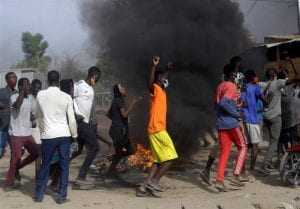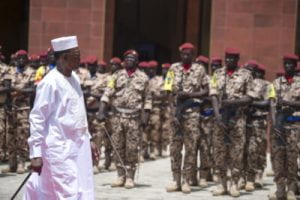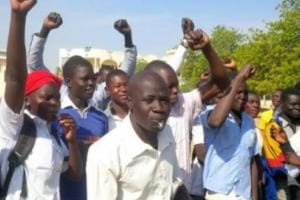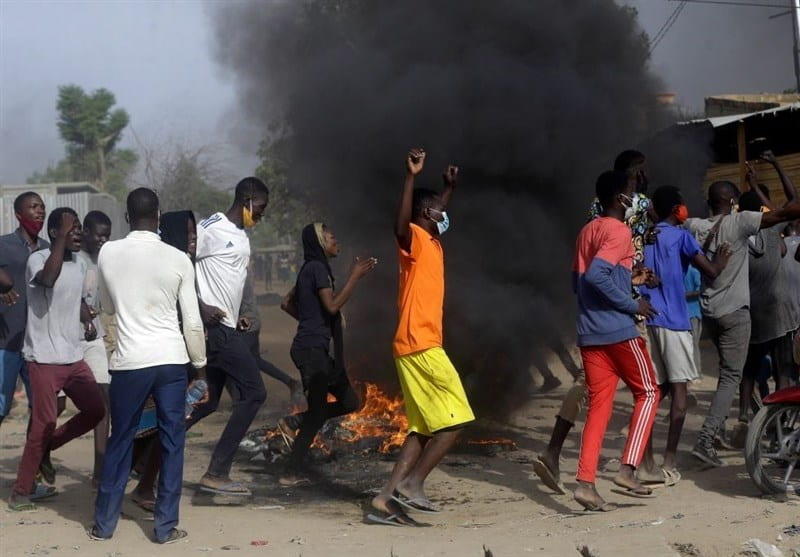
On October 21st, the thunderous crack of tear gas grenades echoed throughout the streets of Chad as palls of black smoke billowed into the horizon. The security forces in Chad’s two largest cities, Moundou and N’Djamena, indiscriminately opened fire onto an anti-government protest. About 50 people were killed and nearly 300 injured in violence that broke out in response to the delaying of the country’s transition towards civilian rule. Hundreds of protestors took to the streets to demand a quicker transition to democratic rule. They were met with internal law enforcement using tear gas and firing live ammunition to disperse the protest. Protesters threw stones; some unverified photos showed a few individuals with knives, but no evidence was found to indicate that protesters carried guns. It began with demonstrators advancing despite police releasing tear gas. However, once the police opened fire, demonstrators were forced to flee, with some helping to carry away the injured and dead. Saleh Kebzabo, the prime minister, announced the death toll at a news conference, explaining that the security forces acted in self-defense.

Chad’s political background
In April 2021, President Idriss Deby died after three decades of iron-fisted rule, sparking a period of political turmoil in the vast, military-run Central African nation of Chad. Mahamat Idriss Deby, his son, seized power shortly after the coup and promised that elections would take place after an 18–month transitional period. However, on October 1st, he postponed the democratic elections by 2 years. October 21st would have marked the end of the initially agreed 18-month transition period, which is why oppositional groups decided to hold the protest that day. The military junta serves to incite the underlying political challenges facing Chad. With a rise in extremist violence and deep social problems, Chad has recently seen a series of coups d’états.

Global Responses
The Office of the High Commissioner for Human Rights (OHCHR) condemns the repression of demonstrations that led to deaths in Chad. Ms. Shamdasani, spokesperson for OHCHR stated that “Defense and security forces must refrain from the use of force against peaceful protesters and ensure that force is not used unless strictly necessary and, if so, in full compliance with the principles of legality, precaution, and proportionality.” Lewis Mudge, Central Africa director at Human Rights Watch, concurs, “People should be able to peacefully protest government policy without being shot at or killed.” The International Federation for Human Rights (FIDH) and its Chadian organizations, the Chadian League for Human Rights (LTDH) and the Chadian Association for the Promotion and Defense of Human Rights (ATPDH) have called for an immediate end to the violent repression of the demonstrations taking place in N’Djamena, Sarh, Doba, Koumra, Abeche and Moundou by the defense and security forces. No longer can the impunity enjoyed by the Chadian transitional regime endure.
Human Rights Violations
What is going in Chad is a violation of human rights that threatens all of us. The preservation of human rights is imperative since these rights protect vulnerable groups as well as help fight against unjust cultural and religious practices that infringe on the rights of individual citizens. As a society that treasures the sanctity of human rights, we have a duty to be watch–dogs that safeguard these rights so that all rights, including ours, are protected. Article 19 of the United Nations Declaration of Human Rights guarantees everyone the right to free speech. Violence against unarmed protesters is not tolerable. Access to the democratic election process is the cornerstone of modern state governance. By deciding who governs, elections give citizens a voice in their government in the most fundamental way. Protecting voter rights preserves the integrity of the election, and therefore legitimizes government. A government without legitimacy is a failed state that cannot accomplish anything. Chad has a responsibility to its citizens to protect and respect their rights to peaceful assembly, freedom of expression, and freedom of opinion. Although conflict has been a regular feature since the country’s independence, these protests are the culmination of the current mixture of internal volatility and factionalism. Anyone who lives in the free world and values their liberty should be concerned for their own rights. It is important for Chad’s international partners to support civil society so that they can reduce violence risks and promote human rights. The deadly aftermath should serve as a harrowing reminder that our own human rights are in jeopardy if this situation is not remedied.

